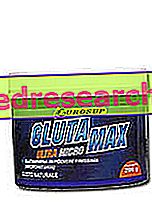Generality
Description and characteristics of castor oil
Castor oil is a vegetable oil obtained by squeezing the seeds of the castor plant (botanical name Ricinus communis ).

Castor oil is a liquid with a color that varies between transparent and yellow, and a characteristic odor. The boiling point is 313 ° C and its density is 961 kg / m3.
Castor oil triglycerides are composed of 90% ricinoleate fatty acid chains; the other significant components are oleate and linoleate.
Castor oil can be obtained either by pressing or by extraction with solvents; the total yield fluctuates between 35 and 50%. Only the first pressing (cold) product is used as a medicine, while the rest is applied in the industrial sector.
Castor oil uses
Castor oil and its derivatives are used in the production of soaps, lubricants, hydraulic and brake fluids, paints, dyes, coatings, inks, cold-resistant plastics, waxes and polists, nylon, drugs (as an excipient) and perfumes.
In the food industry, castor oil is used in various additives; some examples are the aromas of sweets (for example polyglycerol polystinoleate or PGPR in chocolate) and mold inhibitors in the packaging.
In India, Pakistan and Nepal, castor oil is used for the preservation of cereals and certain legumes.
Indications
When to use castor oil?
Castor oil as a laxative
Castor oil has been indicated as a laxative for centuries, a purge with a rather unpleasant smell and taste. Today this use has been downsized, given that its purgative action is rather drastic. Sometimes, castor oil is used to free the intestine before surgery, radiological, sigmoendoscopic and proctoscopic procedures, even if its most well-known field of application is related to the total evacuation of the colon before giving birth.
Castor oil in cosmetics
Castor oil has a good affinity for keratin, the main constituent of hair, hair and nails. Therefore, castor oil is widely used in the cosmetic industry, mainly as a moisturizing agent. Distributed on the skin, in fact, it forms a film that strongly reduces the evaporation of the cutaneous water.
Castor oil is also very suitable for hair and is well known for its strengthening, restructuring, anti-fatigue and softening properties. Very dense and filming, but not very easy to use pure due to the low spreadability, in the long run, however, it tends to dry them, so it should be used sparingly.
Castor oil is also used to reinforce and give volume to the lashes, applying it pure in the evening before bed.

Online it is possible to buy 100% pure cold-pressed castor oil, useful to stimulate hair growth, eyelashes and eyebrows as well as to strengthen nails. Thanks to the natural and anti-fungal antibacterial properties and the high content of minerals, proteins, vitamin E and Omega 6/9, castor oil can be used on the scalp to help prevent and repair hair loss and can be used for the treatment of folliculitis, dandruff and scalp infections. Its ricinoleic acid content, then, helps to balance the pH of the scalp, restoring the damage caused by overly aggressive hair products. Finally, antioxidants in the composition of castor oil contribute to preserving the concentration level of keratin, helping to make the hair stronger and brighter. The product is sold together with a set of applicators, which facilitates the application of castor oil on eyelashes, eyebrows and selected areas.
For sale on Amazon

Alternatively, cold-pressed castor oil is available in 1L format, 100% pure and unrefined. The smell is light and characteristic, the consistency is viscous, similar to honey, and the color can vary from light to yellow / brown. This oil is an excellent ingredient to use in homemade cosmetic formulations, especially for hair care and to nourish and revitalize eyelashes, eyebrows, nails, cuticles and skin. The product is not tested on animals and is free of hexane and ricin. If you are using the product for the first time, it should be tested first on a small area of the body.
For sale online
Industrial uses of castor oil
Castor oil is characterized by a high content, up to 90%, of ricinoleic acid ; it is a fatty acid with 18 carbon atoms, unsaturated and hydroxylated in position C12, present as a triglyceride and not found in other lipid substrates.
This nutrient gives the castor oil peculiar properties, which make it very used in the pharmaceutical industry, for the production of medicines, and in the chemical industry, for the preparation of paints and lubricants.
Castor oil can also be used for the extraction of undecylenic acid, known and used for its antifungal properties.
Property and Effectiveness
What benefits has castor oil shown during the studies?
Laxative property of castor oil
Castor oil is the most drastic of oil-based irritant laxatives; this action is linked to the presence of ricinoleic acid, which after ingestion is released from triglycerides by gastric and pancreatic enzymes with the support of bile.
In its free form, only a small part is absorbed by the intestine, while the most important quantities remain in the lumen, where ricinoleic acid forms salts like sodium and potassium ricinulated. Experimental tests have shown that these substances are actually HABITS to promote intestinal peristalsis, which instead tend to slow down and disturb its characteristic rhythmicity. Rather, acting as a soap on the surface of the mucosa, they inhibit the absorption of water and electrolytes in the jejunum and in the ileum, increasing the fluidity of the intestinal contents.
Castor oil therefore produces a marked laxative effect within 2-6 hours, with the emission of one or two semi-liquid stool discharges. In the stomach, in fact, it acts like any other fat, delaying the time of gastric emptying; hence the recommendation to take it on a preferably empty stomach.
| Acidic composition of castor oil | ||
| Palmitic acid Stearic Acid Oleic acid Linoleic acid Α-Linolenic acid Ricinoleic acid Arachic acid | 16: 0 18: 0 18: 1 18: 2 18: 3 18: 1 (OH) 20: 0 | 1-2% 1-2% 3-6% 3-5% 0.5% max 83-90% 0.3% max |
Doses and Mode of Use
How to use laxative castor oil?
Castor oil is generally taken on an empty stomach, mixed with mint essence or orange juice to mitigate the unpleasant taste; it can be used in doses of 5-15 ml in a child or 15-60 ml in an adult.
It is advisable to take castor oil on an empty stomach; at most, it is allowed to improve the flavor by mixing it with a little fruit juice or juice.
The quantity of castor oil must be carefully measured with the appropriate dispenser; on the contrary, it is not appropriate to use the classic "soup spoon", because it does not allow to obtain an effectively correct dose.
Side effects
Like all laxatives, especially with an osmotic action, castor oil (even in the recommended doses, but above all in excess) is responsible for:
- Abdominal pain or cramps
- Nausea
- Diarrhea
- General weakness.
In the long term, castor oil proves to be responsible for:
- Dehydration
- Nutritional malabsorption
- Rebound effect and aggravation of the tendency to constipation.
The serious side effects of taking castor oil, such as to require immediate medical intervention, are:
- Persistent nausea
- He retched
- Persistent diarrhea
- Muscle cramps
- Weakness
- Arrhythmia
- Dizziness
- Decrease in urination
- Cognitive variations, such as confusional state.
Castor oil can generate allergic reactions with the appearance of:
- Rash
- itch
- Swelling (especially of the face / tongue / throat)
- Severe vertigo.
Side effects of castor oil for injection
Anaphylactic reactions to castor oil are rare and can occur especially when used as a vehicle in injections.
Side effects of castor seeds
The seed of the castor oil and the residual panel of the squeezing contain ricinine and ricin, very dangerous poisons that limit its applications in the zootechnical field.
Poisoning symptoms include nausea, vomiting, diarrhea, bleeding gastroenteritis, convulsions, arrhythmias, embolism and tetanic spasms.
The ingestion of a few castor beans is lethal for humans and animals; for this reason studies on genetic improvement aimed at reducing the content of ricin and ricinine are in courses.
Contraindications
When should castor oil not be used?
Castor oil is obviously contraindicated in the treatment of subjects who have allergic and specific hypersensitivity; It is essential to pay attention to any additional ingredients of castor oil products.
It is also not recommended for the treatment of irritable bowel syndrome characterized by the alternation of constipation and diarrhea.
Castor oil is not considered safe in pregnancy and lactation.
We do not recommend the use of castor oil in the case of acute pathologies of the anus and rectum (especially rhagades, haemorrhoids and prolapses) if not caused by constipation; even in this case, it must constitute an "emergency" remedy.
Castor oil can alter the absorption of some drugs and therefore their pharmacokinetics.
In all circumstances, it is counterproductive to use castor oil for long periods of treatment.
Pharmacological Interactions
Which drugs or foods can change the effect of castor oil?
There are no known direct interactions between castor oil and drugs. However, as anticipated, castor oil can alter intestinal absorption and therefore pharmacokinetics.
Precautions for Use
What do you need to know before taking castor oil?
It is strongly inadvisable to use castor oil without first consulting your doctor, who will have to exclude other diseases (appendicitis, toxinfections, diverticulitis, etc.) before recommending the use of the product.
On the other hand, even if the use of this medicine is prescribed by the doctor himself, make sure that you fully understand the potential side effects that castor oil can trigger, to avoid the benefits being lower than the risks of its use .
It is essential to inform your doctor immediately if you experience the most serious side effects.
Do not start, stop or change the use of other products at the same time without doctor's approval.
Sponsored Content: Mypersonaltrainer.it presents products and services that can be purchased online on Amazon and / or on other e-commerce sites. Whenever a purchase is made through one of the links on the page, Mypersonaltrainer.it could receive a commission from Amazon or other cited e-commerce. We inform you that the prices and availability of the products are not updated in real time and may change over time, so we invite you to check availability and price on Amazon and / or on other cited e-commerce.



